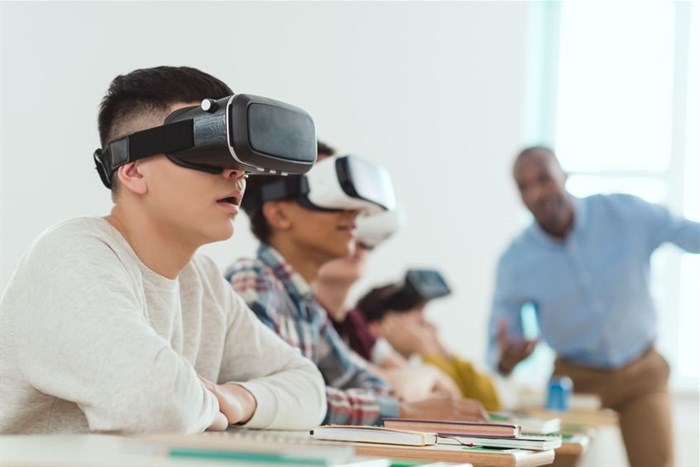
Much like a manufacturing firm needs a flexible production line to adapt to changes in demand and customer preferences, education must also be tailor-made in a way that prepares students for this changing environment. To effectively implement Education 4.0, education needs to enable more participation by students.
Ten to 15 years ago, it wasn’t uncommon for a classroom of students to be sitting quietly, listening to a teacher lecture on a specific topic. Taking notes on that topic from a whiteboard or overhead projector, students were literally passive recipients of information on which they were later tested.
In the Education 4.0 approach, the student transforms from being a passive recipient of information to an active participant in a personal learning process.
There was once an approach that claimed that students should be given "basic knowledge” to use to build additional knowledge. The problem is that the definition of basic knowledge has never been updated and, as a result, is now irrelevant. Education 4.0 involves collaboration with peers, guests, teachers and administrators. The environment fosters discussion and teamwork.
By encouraging high levels of collaboration, open communication, and strong connections among students, teachers can more effectively prepare students for success in college, the workforce, and life as a whole. Many of the existing beliefs about education are being turned on their head, revitalising the educational system for the students of today.
Education 4.0 encourages the creation of curricula that emphasises STEM subjects for a more technologically-able workforce, making technology, coding and robotics accessible to the 99% of students who cannot currently access and utilise the Connected Computing revolution to allow for distance learning and virtual robotics.
Still today, knowledge is given and received in silos, again mirroring what we saw in the age of production lines. Teachers are just that – supervisors made for giving over knowledge, and often do not encourage questions or the adapting of their information. Students are expected to sit quietly and take in information, without interaction with their peers, or collaboration with other students or guests.
Education 4.0 involves flexible, tailor-made curricula, taught by teachers who become mentors to their students, treating them as individuals. In the workforce of tomorrow, students need to develop into active lifelong learners creating a diverse and pluralistic society where every person understands and plays to their strengths, building a fair and self-sustaining model for education rather than one based on knowledge.
Here are six ways to close those gaps and get your school on the Education 4.0 train today:
1. Create a tailor-made learning path. Design a personal learning path that suits each student’s strengths and interests. This will allow them to build knowledge based on their individual previous knowledge or experience, and on their acceptance of the new information. Solutions should never force all students to learn the same thing at the same time and at the same pace.
2. Leverage formative assessments. This will enable educational staff to help students identify their own strengths and also pinpoint their own weaknesses. A formative assessment is focused on helping the student accept and learn the new information and does not classify students based on test results.
3. Transform teachers into mentors. Teachers must be trained on the fine points of building a new curriculum and offering every one of their students a personal journey. They should be expected not to lead, but rather to support learning. For example, teachers must be able to use their own vast knowledge to assist students in a mentoring capacity during their own personal journeys.
4. Embrace divergence and pluralism. Students are not the same and not expected to be the same. The role of the education system is to help students identify the field in which they are suited and help them excel at it. When teachers find their areas of aptitude, it gives the students a better chance to serve their society as adults.
5. Stop equating education with knowledge acquisition. Education, not knowledge transfer, should be every school’s goal. Today’s schools will determine the development of society in the future. And while no one can predict the future, the universal values of doing good, accepting others, and collaborating with them will always be essential. This will hold true even when the graduates of today’s education system take on the societal roles of tomorrow.
6. Put teachers at the heart of Education 4.0. Contrary to other beliefs, no one really wants to replace teachers with robots. In fact, teachers and mentors should be one and the same, and should shepherd students to success in the work world and in life. Design programmes for teacher training, give them pedagogic tools, and provide them with a support structure that improves the relationship between the teacher and the student, enabling the former to interact more effectively. And remember that technology is there to serve teachers, allowing them to be even more effective instructors in the long run.